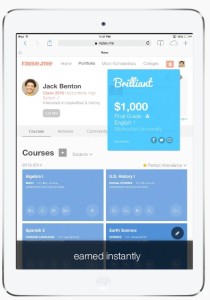 If your child is the first in the family to go to college, that carries a whole lot of stress. Being a first generation student can put added pressure on the student and the family. As stressful as that seems, here are three college stressors even bigger, and some tips on how to alleviate them:
If your child is the first in the family to go to college, that carries a whole lot of stress. Being a first generation student can put added pressure on the student and the family. As stressful as that seems, here are three college stressors even bigger, and some tips on how to alleviate them:
It’s so much more expensive than you thought
When it comes to college, expect two, high-voltage doses of sticker shock. The first comes when you start looking at the tuition price. If information is free, why is the diploma so expensive? Once you fully accept that college is something you should have been saving for all your life, there is the second financial reality to deal with.
The price of college is more than the cost of credits. Your child is leaving home for the first time and could possibly need to take out a student loan. Don’t worry. You’re not alone. About 60% of college students take out a student loan to help pay the tab, according to the information on this site. It walks you through all the key information you need for understanding, and selecting a good student loan. Once your child graduates, and paychecks start arriving from his gainful employment, he will begin repaying the loan. In the meantime, you are still on the hook for those expensive Nike shoes.
You worry about his commitment to academics in college.
Every parent believes their child is going to be the next Einstein. Even if your child was a good student in high-school, it does not follow that she will be brilliant in college. There is too much riding on good grades to leave it to chance. What you need is some type of college prep assessment to be certain little Johnny has what it takes to make it in the big league.
Accuplacer and Work Keys are good places to start. These assessment systems give your child the opportunity to figure out his academic strengths and weaknesses. They are only two of several options that serve the same purpose. For a reasonably good student, ACT and SAT test prep courses may be sufficient. Either way, you, as a parent, don’t have to go into it blind. That should be a huge stress relief.
Letting go is easier said than done.
You think you’re ready to kick them out of the nest, and start your new life as a professional vacationer. But when you make that long drive home after dropping them off at college, you are flooded with all the doubts and misgivings associated with separation anxiety.
Fortunately, most of that worry is necessary. You did a good job preparing them for life. They have the same chance of surviving and doing well as you had, maybe better. Still, not everyone matures at the same rate. For some, eighteen years may not be quite enough. If you are genuinely worried about their ability to be independentl, keep them home for another two years while they work out their issues in community college. Academically, they will lose nothing, while gaining a little more time to mature at home. You will also save money.
Money, aptitude, and letting go make up three of the biggest stresses you will face when sending your child off to college. With student loans, prep tests, and community college, these stresses can be nearly eliminated.









